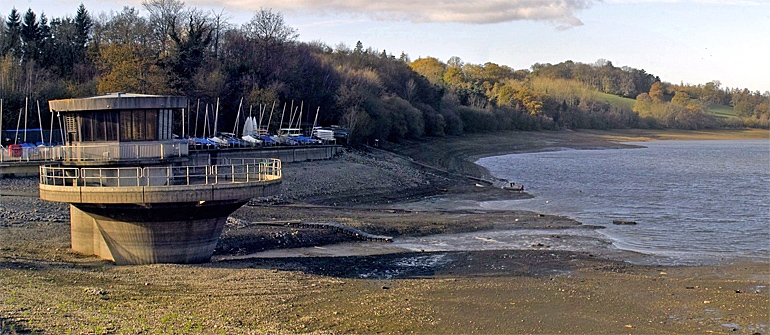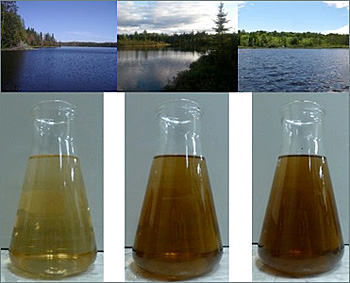Consortium with PWN and Delft university starts development of new water technologies for DOC-removal
 The DOC2C's consortium, consisting of PWN Technologies (NL), South West Water (UK), De Watergroep (BE), Lille University (FR) and Delft University of Technology (NL) received a grant from the European Union to accelerate the development of a new drinking water treatment technology to remove Dissolved Organic Carbon (DOC).
The DOC2C's consortium, consisting of PWN Technologies (NL), South West Water (UK), De Watergroep (BE), Lille University (FR) and Delft University of Technology (NL) received a grant from the European Union to accelerate the development of a new drinking water treatment technology to remove Dissolved Organic Carbon (DOC).
Over 35 organizations, varying from drinking water companies, universities, knowledge centers and the private sector (SME’s), will be involved in the project.
Increasing levels of colour and DOC in reservoirs
The water quality in many of the drinking water reservoirs in the areas around the English Channel is deteriorating as a result of more extreme weather patterns - long dry spells followed by intense rainfalls- and pollution by industry and recreation.
Moreover, one of the biggest challenges for the water supply companies in these areas is associated with treatment of surface water, is the fluctuating and increasing concentrations of organic matter.
This is illustrated by the increasing levels of colour and DOC seen, for instance, in impounding reservoirs in the South West of England over the last decade (on top photo almost empty Ardingly reservoir in South west Engeland in April 2012).
 Current treatment of surface water
Current treatment of surface water
At present the first treatment step is traditionally coagulation by dosing of abundant quantities of ferric or aluminium salts and chemicals to adjust the pH to optimise this coagulation.
Next to the energy, needed to produce these chemicals, it produces huge quantities of sludge.
Improved DOC removal
The significant improved removal of DOC from drinking water sources asks for innovation in drinking water treatment technology.
Fluid bed ion-exchange, suspended ion–exchange, ceramic microfiltration, in-line coagulation and other new technological innovative solutions are sought for.
This project is to intensive exchange of knowledge and experience between utilities, universities, knowledge centers, contractors, engineering companies occupied with the treatment of surface water.
It will also open up new and extensive market chances for technology providers, a lower environmental impact of drinking water production and improved water quality.
Safe drinking water
Gilbert Galjaard, CTO of PWN Technologies said: "Removing DOC is problematic for this region and something we all struggle with. PWN Technologies and the other partners are very grateful to be part of this programme".
Chris Rockey, South West Water’s Science and water quality manager said: "This project will lead to new innovative technologies that will contribute to South West Water's aim to continue to provide good, safe drinking water that has the trust of our customers, while minimizing the cost of water treatment and our impact on the environment."
Liesbeth Verdickt, Process Engineer at De Watergroep: “Also in Belgium we are dealing with water quality challenges and this project and unique cooperation will enable us to face these challenges and to incorporate innovative technologies in our treatment plants.”
Luuk Rietveld, professor Urban water cycle technology of Delft University of Technology: “I am looking forward to a fruitful and intense cooperation with all stakeholders and to find new solutions with a lower environmental impact."
Baghdad Ouddane, professor Environmental Chemistry at Lille University: "This project gives us the opportunity to exchange knowledge and experiences with a lot of experts facing the same challenges. By combining our forces the best ideas and new innovations will be found."
This news item was originally published on the website of DOC2C's.
More information
DOC2C's
www.doc2cs.com
dmiddendorp@pwntechnologies.com



